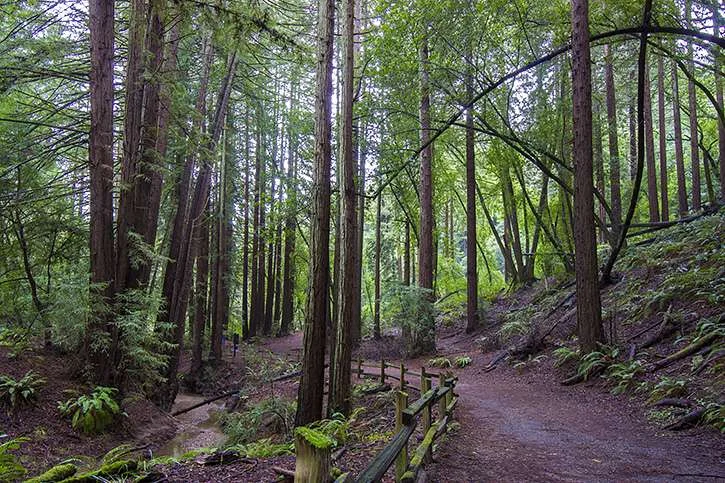I Wait For Email: Unemployment in the Digital Age
People don’t tell you that if you are unemployed and looking for work, you will spend a lot of time waiting for email. This has certainly been the case for me. I wait for email from potential employers. I wait for email from advisors and mentors. I wait for email about networking over coffee and for email from magazine editors about story pitches. I wait for email from job committees and from HR managers.
Much has been written about the precarious nature of labor—the disintegrating social and economic security that faces today's workers. But I have yet to come across commentary on the sheer tedium of the experience. So much knowledge labor now relies upon communicating with editors, platform managers, and marketing staff. One thus spends a large amount of time, well, waiting. One waits for responses to job applications, to interview inquiries, to story pitches, to edits and revisions. One waits for feedback and criticisms. It is an anticipatory, ever hopeful, and often crushing existence.
I wait for emails about job applications. I applied to fifty last year. I have a folder on my computer labeled "Job Market," and it is filled with hundreds of résumés and cover letters and CVs that I have sent out into the interwebs. One can't just e-blast some stock résumé. Each document must be tweaked and shaped to display how specific experiences and skills meet the needs of each position.
In this sense, being unemployed isn't that much different from graduate school. During doctoral study, I often waited for responses from my advisors. Once, while I was researching abroad, I waited two months to hear back about a dissertation chapter draft. There is not much incentive for tenured faculty to care about their teaching or mentoring burdens. Academic careers only advance through publication. So people like me have to wait.
Dissertating in the laundromat.
I suppose waiting for email is a common activity among folks without power. We wait for emails from the people who decide whether we are qualified, appropriate, or worthy. We wait for emails from those who don't wait for email, from people who actually have too much email. Perhaps this is a defining dichotomy in our modern economy—the separation between those who wait for opportunity in their inbox and those with endless messages, calling for their time, attention, and favor.
My longest waits for email related to applications for college teaching positions. Applying to academic jobs is a year-long process. It requires submitting writing samples, research statements, teaching philosophies, course syllabi, and student evaluations. I have emailed applications with attachments running over one hundred pages. The flood of candidate materials that confront faculty hiring committees must be biblical in size. But it is still a long wait. It once took ten months to get a stock rejection email back from a postdoc in Chicago. Apparently 1,100 people applied.
My positive returns on the academic front were minimal. I had a single phone interview for a school in Alabama. I didn't get the job.
Waiting for email has developed unsettling Pavlovian responses. Maybe your resolve is stronger than mine, but there is no way I can resist that red-numbered icon that hovers over the mail application and enumerates unread emails. I had to change my settings to get rid of it. But even the sound of new email became a distraction: that little chime causes me to reflexively open my email browser. I've tweaked that notification beep in an effort to make it less jarring. Maybe I should silence it altogether.
Don't get me wrong. I'm not just sitting on my hands, refreshing my inbox. While I wait for email, I think about new pathways. If I can't be an academic, maybe I can contribute meaningful work somewhere else. But I have learned that email still provides direction for contract work. A single message can structure my entire work week. A note from an editor gives me the green light to flesh out that pitch. Missives from marketing departments provide new leads. And the job listings that drop into my inbox bestow a fleeting sense of hope that I can hang out my shingle, or learn new skills, or at least get some dental insurance.
So I wait for email to return purpose to my life. Career counselors will admonish you to be "active," "engaging," and "always networking." But they won't tell you about the sheer tedium that permeates the interludes. They won't mention the painful stasis that rests between the missives of "Yes, let's do this pitch," or "We'd like to set up an interview by video."
It is painful to recognize that the very structures of the world economy are against you. There is a visceral sense of despair and uncertainty that comes from dreams deferred. You are made unmoored. An aching emptiness settles in when you realize that no one wants or needs to get in touch with you, like someone pulling their fist away from your punched stomach.
But I still wait for email because the spaces between the chirps of new messages also hold out hope for the future. It is as if one email might magically change my life. As if the outside world might suddenly intervene and rescue me from my basement studio, from writing freelance pieces between wash cycles at public laundromats.
So I open the mail app on my phone. I watch the "Checking for mail..." message appear. My hopes dance on that ellipsis, as if the phone and I are taking a collective breath, inhaling the notion of pure possibility. The spinning icon drops. I blink and for a moment, ever so slight, I wonder if my world will change.







